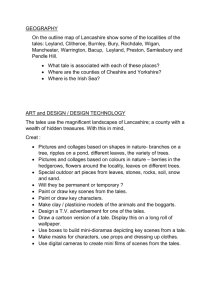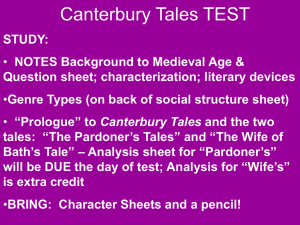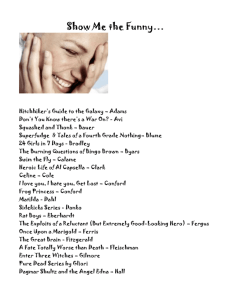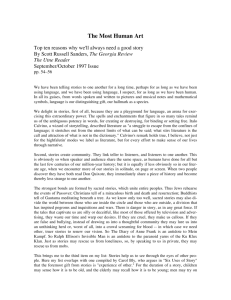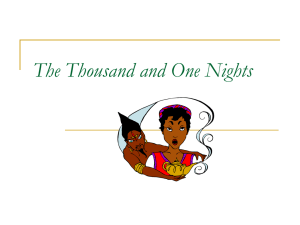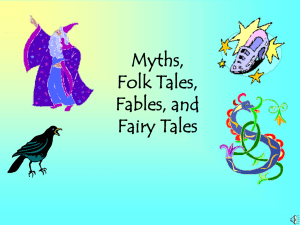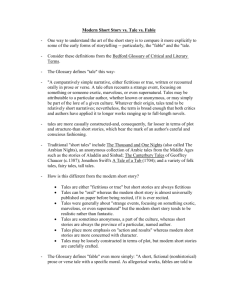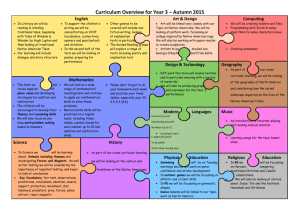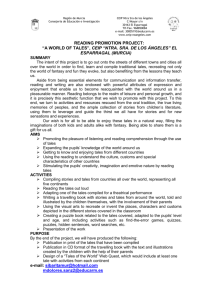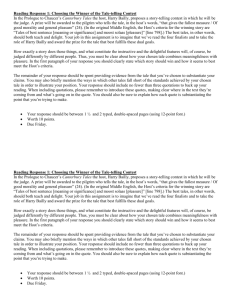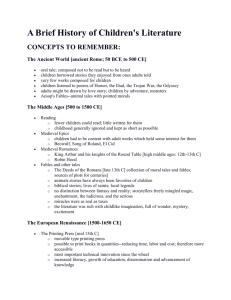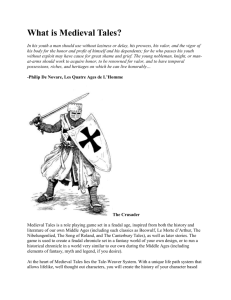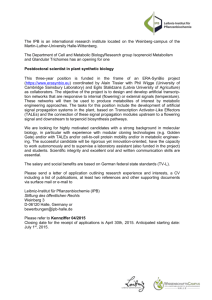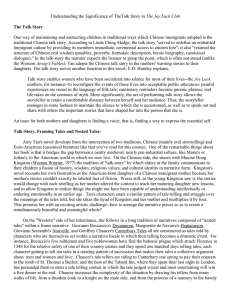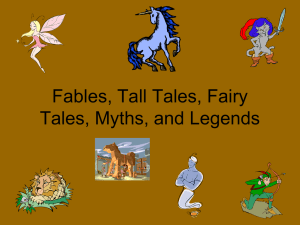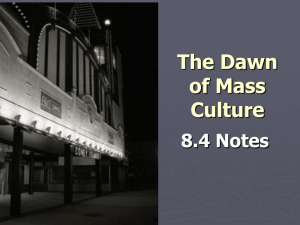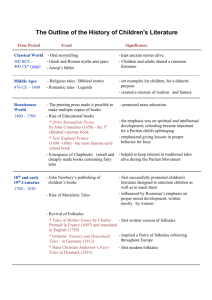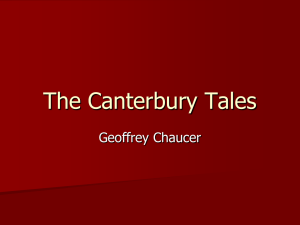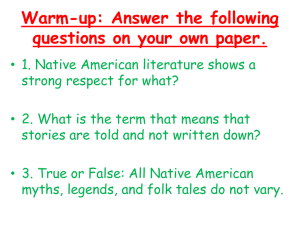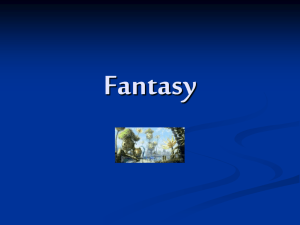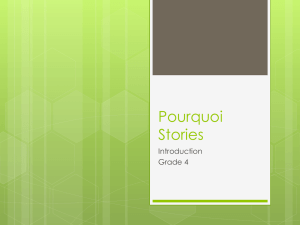Folklore Powerpoint
advertisement
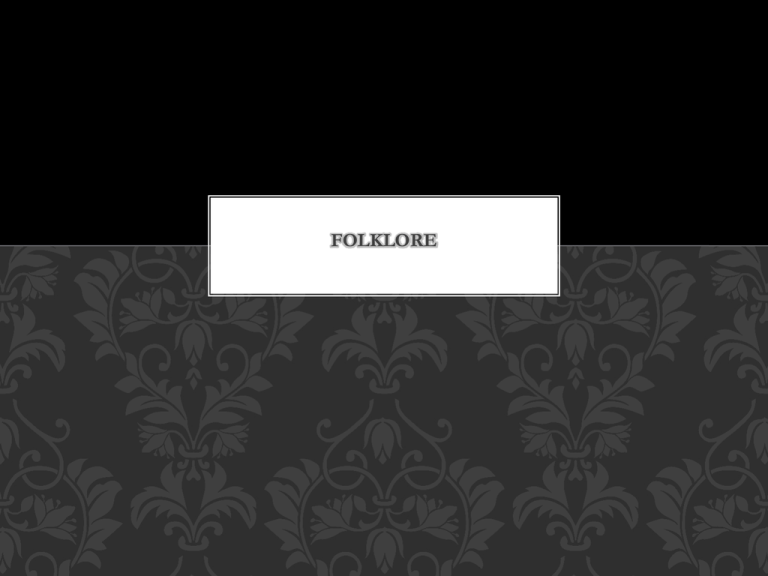
FOLKLORE ORAL NARRATIVE A story that is told, sung, or performed…Oral Narratives can be written down HISTORICALLY SPEAKING… • Help to explain the natural world • Help to articulate fears/dreams • Provide order to a society • Provide understanding of a culture’s values, beliefs, mores, etc. • Entertainment MOTIF Smallest meaningful unit of a story VARIANT A deviation from standard text CULTURAL VARIANTS M o n og e n e s i s Po l yg e n e s i s One story created in one location and eventually spread to other cultures orally Cultures develop similar stories because these stories address needs/desires/etc. that are common to all people PORQUOI TALES Etiological tales…how things come about/to be FABLE A simple folktale that illustrates an ethical point. Often features animals but not animal tales Moral is stated ANIMAL TALE A simple story in which animals play a major role Subgenre: Trickster Tale=animals that play tricks and behave mischievously A sacred narrative set in the primordial past MYTH Tower of Babel TALL TALE A deliberate, exaggerated lie told with a straight face for humorous effect. LEGENDS Stories that people tell about events/people that are purportedly real/true. Told to inform, warn, advise, enlighten Distinctive beginning Real World, supernatural, realistic/well rounded characters FAIRYTALES Stories that are fictional, created to entertain and sometimes instruct. 1st collection of tales were collected and published by the Grimm Brothers in 1812 Distinctive and recognizable beginning and end LITERARY TALES Modern adaptations of traditional folk literature SUB-GENRES OF LITERARY TALES Tr a d i t i o n a l S t y l e • Authors write in the traditional style of folktales or fairytales. • Hans Christian Anderson Fr a c t u r e s • Authors create new tales by altering traditional tales • Diane Stanley, John Scieszka, Donna Jo Napoli, Shannon Hale

